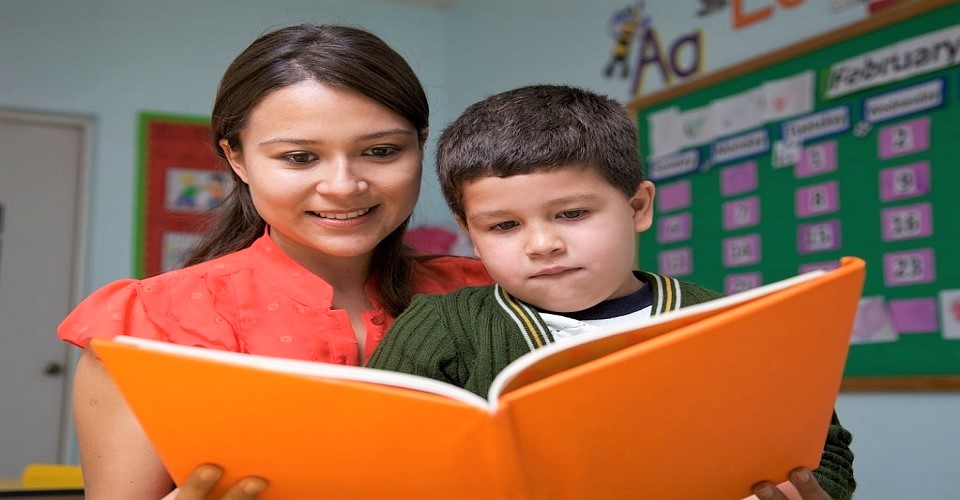Role of a Counsellor in Teaching Kids about Emotions and Feelings
8th May 2021
Emotions are complex feelings, especially for a 5-year-old who doesn't understand why you won't let them eat without washing their hands, or a 7-year-old who is upset that you won’t let them play in the playground past their playtime.
For a teacher donning the role of a school counsellor, it's difficult to teach children about feelings because it's more of an abstract concept. It's tough to describe the way it feels to be sad, happy, scared or excited. But it is important to start making kids aware of their feelings and emotions as early as possible as their emotions affect their every choice and decision.
Children, who understand their emotions, are less likely to throw temper tantrums, fits of aggression, and defiance to express themselves. A kid who can say, “I’m angry with you,” is less likely to hit. And a kid who can say, "That hurts my feelings," is better equipped at resolving conflict patiently.
Begin from an early age
As a teacher equipped with counselling skills, teach your pre-schooler some of the basic feeling words such as happy, mad, sad, scared etc. Older children can benefit from learning more complicated feeling words such as frustrated, disappointed, and nervous.
A great way to help children learn about their emotions and feelings is to deliberate on the way/s various characters in books or TV shows may feel. Ask them “How do you think he/she feels right now?” Then discuss the various emotions the character might be going through and the reasons behind them.
Talk about it
Speaking about emotions has a plus side of teaching children about empathy. Kids think the world revolves around them; thus, it can be a remarkable experience for them to learn about the existence of feelings and emotions of other individuals. If the child is aware of the fact that pushing their friend while in the ground may make them angry and sad, they will be less likely to do it.
Each day, before beginning with lessons, ask your learners, “How are you feeling today?”. With young learners, use smiley faces (if it helps them to pick a feeling) and then discuss that feeling in the class. Talk about the types of things that influences their emotions and feelings.
Point out when you notice a learner is likely feeling a particular feeling. For example, say, “You look really happy doing your art and craft,” or “It looks like you are getting frustrated playing with those blocks.”
Teach Coping Strategies
Young learners need to learn that because they feel angry, doesn’t justify to hitting someone. Instead, they need to learn and practise anger management skills to resolve any conflict peacefully. Practically teach your learners the ways to handle uncomfortable emotions with ease.
Encourage learners to take a self-timeout and to go to their room or any quiet place when they get upset. This can help them soothe and calm down before they break a rule. Also equip them with healthy ways to deal with sad feelings as well. If a child feels upset that their friend won’t play with them, talk about ways he/she can deal with their feelings. Oftentimes, kids are unaware of what to do when they feel sad, so they become aggressive or exhibit attention-seeking behaviours.
Positive Reinforcement
Reinforcing good behaviour with a positive consequence is a great thing to begin with. Praise your learners for expressing their emotions in a socially appropriate way. You can try this by saying things such as, "I really appreciate the way you used your words when you told your friend you were mad at him.”
Another great way to reinforce healthy habits is to use a reward system. For e.g., a token of appreciation could aid a learner in practising using their healthy coping strategies when they feel angry instead of turning aggressive.
Model Healthy Choices
If you tell your learners to use patient words when they are angry but watch you throw a fit after a particular situation, your words won't be effective. You need to model healthy ways to deal with rough emotions.
Using efficient student counselling techniques, highlight situations as examples when you felt angry or frustrated and say it out loud. Say, “Wow, I’m angry that someone cut me off my line.” Then take some deep breaths or model another healthy coping skill so your students can learn to use the same skills you use when you feel angry.
Teachable Moments
You'll need to work with your young learners on emotions throughout their entire growing up years. It's crucial to have ongoing conversations about the ways to deal with emotions in a healthy way.
When a learner makes a mistake, by smashing something out of rage or by giving up when they’re frustrated, consider it as an opportunity to teach them how to do better the next time. Look for teachable moments (and there will be lots of it) to help them find healthy ways to cope with their emotions and feelings.
Written By : Ipsita Roy